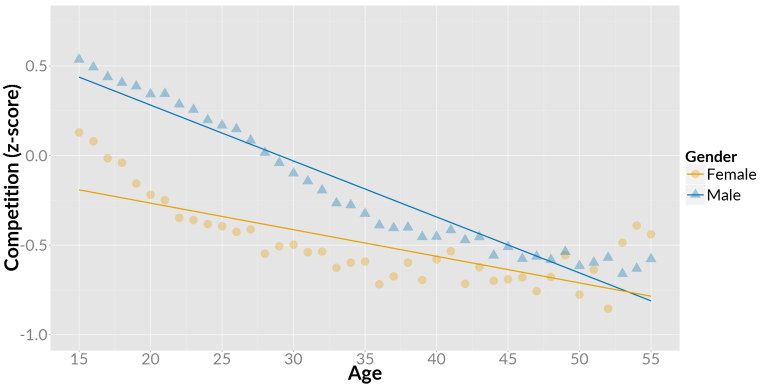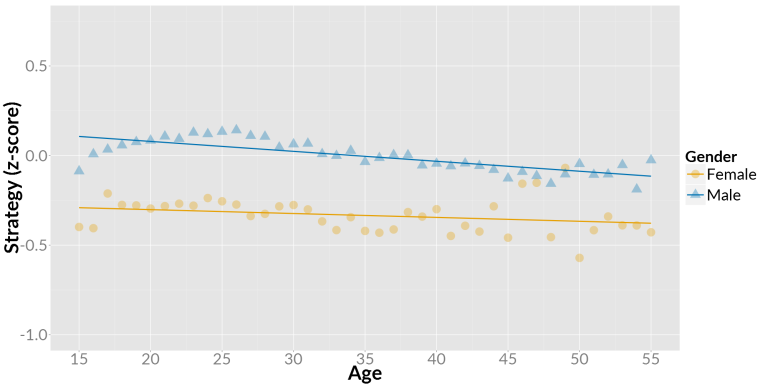New study on player motivations by age and gender - pretty interesting results:

Strategy:

Conclusion & analysis:
http://quanticfoundry.com/2016/02/10/gamer-generation/
Full report is here with lots of interesting data, but it costs $2500 :/
In both the gamer and game research communities, we talk a lot about how men and women like different kinds of games or what games for women ought to look like. And yet, even though the 35+ gamer crowd is clearly growing bigger each year, it’s much less common to see discussions about how gamers change as they grow older.
The data we’ve collected from over 140,000 gamers via the Gamer Motivation Profile allows us to see how gaming motivations vary by age.
Competition is More of a Youth Motivation than a Male Motivation
Among the 12 motivations we measure in our model, the interest in Competition changes the most with age. In our framework, Competition is the appeal of competing with other players in duels, matches, or team-vs-team scenarios.

The gender difference in Competition is large at first among younger gamers, but then disappears with age. As gamers get older, the appeal of Competition declines, but this happens more rapidly for men than for women. Thus, by the time we’re past 45, the difference between men and women largely disappears.
There’s another interesting take-away here. The biggest gap between men and women (among younger gamers) is smaller than the difference between the youngest and oldest men in our data. So age in fact explains a bigger portion of the variance in Competition than gender does.
Strategy:

We then looked for the motivation that changed the least with age. In our model, Strategy is the enjoyment of gameplay that requires careful decision-making and planning. You might think that strategic gameplay appeals more to older gamers than young gamers, but we found that the appeal of Strategy is the most stable motivation overall.
The data also showed that there is a fairly consistent gender difference in Strategy, with men indicating a higher enjoyment of Strategy in gaming compared with women independent of age.
Conclusion & analysis:
In our data, we found that, overall, motivations decline with age. We think this is happening for 2 reasons.
First, as gamers get older and have a broader range of responsibilities and pursuits, they are less likely to rate any particular gaming activity as “extremely important/enjoyable”. Thus, their overall gaming profiles might appear deflated, but the relative order of their motivations would still be revealing.
Second, lower scores on these motivations aren’t necessarily “less” of a motivation. For example, low Excitement implies a specific kind of gameplay, and calm/stress-free gameplay is no less valid than fast/stressful gameplay. The same is true for preference for solo play (as opposed to highly social play). The appeal of solo play isn’t any “less” of a gaming motivation than social play.
http://quanticfoundry.com/2016/02/10/gamer-generation/
Full report is here with lots of interesting data, but it costs $2500 :/
